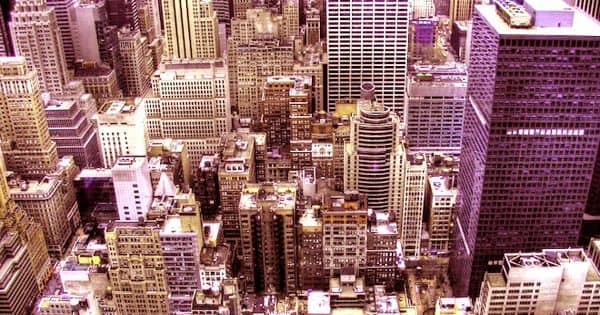City Life
Those who have lived in the country find city life most unpleasant. The noise and the bustle, the smoke and the dust, the air of haste and unrest-as though there is ‘no time to stand and stare’ at the beauties of life and nature-bewilder the countrymen. Accustomed all his days to take life easily, he feels himself out of his elements caught in a perpetual whirl of motion. He loses his bearings amidst the unceasing noise and movement of the crowd. Body and mind are always and equally I a state of high tension. He Is either stunned or intoxicated, and the strain is offered more than he can bear with any degree of comfort.
But a man born and bred in the city has different feelings altogether. All this crowed and ‘busy hum of men’ is to him a perpetual tonic. They have the sharp edge of reality. They bring him in touch with human beings and fill his mind with a sense of human fellowship. He feels himself ‘midst the crowd, the hum, the shock of men’, a small unit in a vast sea of humanity whose constant ebb and flow is something elemental, something that is almost like the blind inexplicable movements of natural forces. From all quarters there come challenges that engage all his faculties and keep him alert and awake. He has always to be active and wide awake and feels all the better for it. Not for him is the ease of relaxation, the dullness of an easy and restful existence. Each day brings its own problems and complications and he must make quick adjustments for which he has to draw heavily on such reserves of powers that he may have. He knows not the dullness of monotony, the lifeless uniformity of a leisured existence. Life for him is an exciting adventure, full of novelty and unexpectedness at every turn.
City life has its own particular pattern. The day breaks not with the song of birds, but with the street cries of hawkers, the cacophony of the motor-horn, the rattle of vehicular traffic, – the thousand and one noises that drown the individual voice in a hubbub of noise. As the day advances, noise and movement gather increasing momentum until midday comes. Then for a few hours, a curtain of quietness descends of the residential quarters; children have gone to their school, men are busy at their avocations, women, after a hectic morning, find relaxation in sleep or gossip or in visiting friends, or perhaps shopping out. In the streets, one hears the chiming bell of the utensil-seller, the drowsy call of the ice-cream vendor, the hawker of clothes, the pedals of sundries. The afternoon passes; once again the noise increases. Children come from schools and, after a hasty tiffin, run to the playgrounds for a romp or a game office-goers and factory-bands return weary and listless, take leisurely tea and then sit in groups on roofs or balconies or verandahs, talking and listening, – for once careless of the flight of time. The horns of motor cars once again send echoes through the streets. The shops begin to fill with men and women, buying this and that. The cinemas, the lecture-halls, the theatres are all thronged with people out for entertainment or edification. And then gradually the tempo subsides and fades away into the darkness of night, and all its quiet and still again,
Dear god! The very house seems asleep.
And all that mighty heart is lying still.
Yet city life, as we know it in our country, is unattractive. Houses are for the most part crowded to suffocation; want of fresh air and light makes the congested localities extremely unhealthy. Streets are infested with unsightly beggars, unwanted dogs, and cattle let loose to wander at will. Dirt and squalor almost in every street betray the indifference of the municipal authorities and the apathy of the citizens. An acrid smell is always in the air. Dirty, dusty, dingy, – it seems strange that people can like to live in the city.
But many of them do. It was Johnson who once said, “When a man is tired of London, he is tired of life.” the same can be said of every big city. There are many reasons for this fondness for the city. One loves “this ravishing reality, this earthliness divine.” There are other reasons. The city is the source of livelihood for many, and a sort of compulsion ties them up in spite of all its disadvantages. It is the center of a thousand trades. It is the seat of culture, of political activities. It gives us the amenities of modern life that are not available in our villages. Cinemas and theatres provide pleasant recreation; the best educational institutions are here for our studies; the best medical facilities are available to us in our sickness. It is the never Centre of business, the focus of intellectual life. The city has something to give to me of all tastes and temperaments. There is no chance of anyone feeling dull and indifferent. For all these reasons, even one who dislikes the city is drawn to it.
Above all, a city is a veritable university for men who like to acquire wisdom from observation and experience. Someone has truly said: “if you would be known and not know, live in a village; if you would know and be unknown, live in a city.”
















